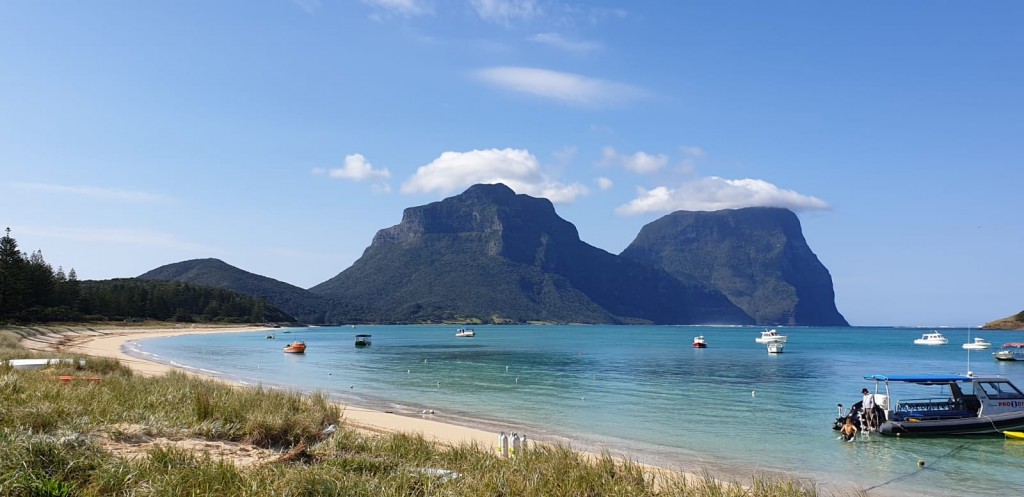Saving species on Islands

Photo: Lord Howe Island (captured by Salit Kark)
We are very interested in advancing island and coastal area conservation that integrates local communities and their islands biodiversity and natural ecosystems. In recent years qwe led a large national scale project to advance conservation of Australian islands and are advancing work at the global and Austral-Pacific scales.
Australian islands
In this new collaborative Threatened Species Recovery Hub (NESP) project that Professor Kark is leading, we examine spatial patterns and processes, as well as management strategies of invasive and threatened vertebrates across Australia’s islands. We are working on both large scale patterns for islands across Australian states, and on specific case study islands (such as Minjereebah, Norfolk Island, Macquarie Island, Kimberley Islands of WA and others, aiming to bring together scientists, managers, experts and other stockholders to share their successes and experience across regions and enhance island environmental conservation and trade offs.
Please visit the Threatened Species Recovery Hub website for more information about the Islands project and other threatened species related work.
You can now read the research outputs from Project 4.2: Saving Species on Australian Islands
THREATENED SPECIES ON AUSTRALIAN ISLANDS NATIONAL DATABASE – DOWNLOAD THE DATABASE
CITATION FOR THE DATABASE:
Baxter, P., Rogers, A., & Kark, S. (2021). Kark Group’s Island Occurrences of Threatened Australian Species (IOTAS) database, October 2021. The University of Queensland. DOI: https://doi.org/10.48610/0c62ecc
Paper in submission:
Peter WJ Baxter, Erin McCreless, John CZ Woinarski, Stephen T Garnett, Andrew M Rogers, April E Reside, Justine Shaw and Salit Kark. 2022. The first national-scale database of threatened species on Australian islands. In submission.
HOW TO USE THE DATABASE SUMMARY: (IOTAS) short database guide and worked examples
HOW TO USE THE DATABASE VIDEO: https://www.youtube.com/watch?v=xvHMBN01_ig
FACTSHEET ABOUT THE PROJECT AND DATABASE: Research findings factsheet: Project 4.2.1
FINAL REPORT: SAVING SPECIES ON AUSTRALIAN ISLANDS, Peter W. J. Baxter, Andrew M. Rogers and Salit Kark. November 2021
Major findings are also summarized in the following FACT SHEETS:
4.2 Hollow-nesting birds in Tasmania
4.2.1 Creation and analysis of a national database of threatened species on Australian islands (More details here)
4.2.2 Actions for saving threatened species on priority islands (More details here)
4.2.2.1 Using local stakeholder knowledge to inform best practice for invasive predator management
4.2.2.1 Using population models for tracking invasive species: The case of the red fox in Australia
4.2.2.1 Optimising feral animal control to benefit threatened species on South East Queensland islands (More details here)
4.2.4 Norfolk Island threatened species conservation
4.2.5 Protecting threatened quolls and other biodiversity on Kimberley islands from cane toads: Research findings factsheet

